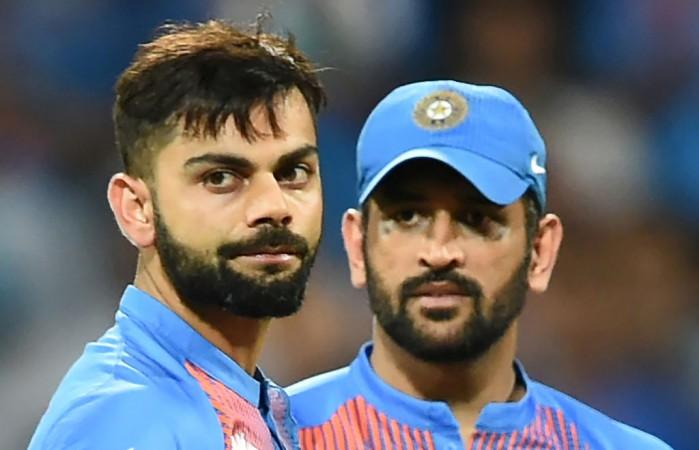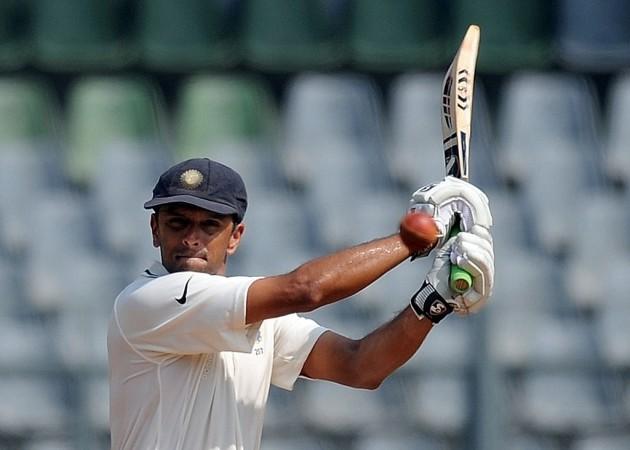International Cricket Council (ICC) chief executive, David Richardson, has expressed concerns about the growing instances of sledging and cheating in cricket.
While delivering the MCC's 2018 Cowdrey Lecture at Lord's on Monday, August 6, Richardson said that cricket doesn't need emotionless robots but insisted that it should be free of "ugly behaviour".
The 58-year-old former South Africa wicketkeeper added that a cricketer needs to understand that they're not representing just themselves but the ones that have played the sport before and those who will follow.
Cricket needs its larger-than-life characters and its good-guys

"Cricket and its spirit is defined by the personalities of its participants – administrators, umpires, referees and the players themselves. On the field, cricket needs its larger than life characters – its Colin Milburns, Freddie Flintoffs, Shane Warnes, Virat Kohlis and Ben Stokes', its lovable rogues, but it also needs its Frank Worrells, Rachael Heyhoe-Flints, MS Dhonis, Rahul Dravids and its Colin Cowdrey's to make sure we all stay on the good-guys' (or girls') side of that "line". The future of our game depends on it," Richardson said.
"As fans, we want our players enjoying and expressing themselves, we want to see emotion, passion, and pride from players. What we don't want is robots, lacking in personality, but equally what we don't want is ugly behaviour.
He added, "Lately we've seen too much ugly on and off the field of play. As a sport, we must be united, not just in our desire to protect the spirit of the game, but every single person in the game needs to commit to living that spirit and ensuring it is relevant in the 21st century continues to make cricket a unique sporting proposition.
"What exactly is this spirit of cricket? The spirit of cricket isn't a historical hangover; it is part of the fabric of our sport."
Cheating is not what we signed up to: ICC chief
Recalling the much-talked-about ball-tampering incident that led to bans for Steve Smith, David Warner, and Cameron Bancroft, Richardson said the reaction to the infamous incident speaks volumes about how fans see cheating in sport.
He insisted that the apex body of international cricket has taken quite a lot of steps but it all boils down to how the player handles himself or herself at the end of the day.

"The public reaction, around the world, to the incidents in the recent Australia–South Africa series was an eye-opener. The message was loud and clear, cheating is cheating and is not what we signed up to," Richardson said.
"As administrators, we have to do our part and we have agreed to take stronger action against behaviour that is unacceptable, to back our match officials more and for boards to behave in a manner that creates a culture of respect between teams. We have taken a step in the right direction."
"And, here, it is important for current players to understand that they represent not only themselves but all the players that have played before them, and those that will follow. The vast majority of players do this day in and day out. Players like Kane Williamson, Hashim Amla, Mithali Raj, Jos Buttler, Katherine Brunt, Moeen Ali and MS Dhoni.
"Going back in time to players I played with or against – Jonty Rhodes, Shaun Pollock, Alan Donald, Courtney Walsh, Richie Richardson, David Boon, Rahul Dravid ... so many examples. Players who played hard, never gave up, never took a backward step, played with passion and a sense of enjoyment but never disrespected the opponents or the umpires. Players who the fans loved to watch."

Richardson reveals ICC's plans to curb sledging and cheating
Elaborating on measures the ICC has come up with to curb sledging and cheating in the sport, Richard son listed out three main points. He urged the home side to treat the touring teams as "guests" and help create an environment of respect for the game.
"So, apart from this, what has ICC done to address the situation? Three main points," Richardson added.
"Firstly, we have introduced new offences and increased the severity of the associated penalties to serve as an effective deterrent.
"Secondly, we will take steps to educate the players on what it means to play the game within the spirit – advising them on not only what you can't do but showing them examples of what type of conduct does exemplify the spirit of the game as we would like to see it.
"Finally, the Boards have agreed to adopt principles of behaviour that will create an environment of respect for the game, the match officials and each others' teams. This includes the philosophy that the touring team should be treated as honoured guests in the country with the standard of practice facilities and other logistical arrangements exactly the same, if not better, as the home team."

















